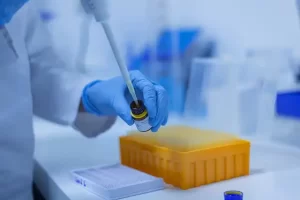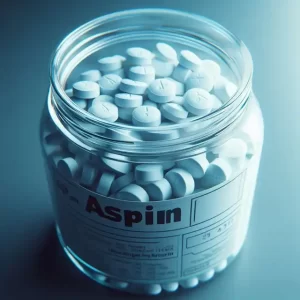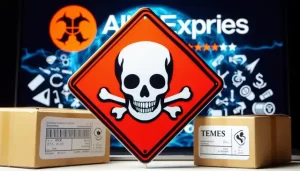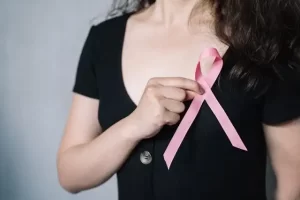BrainStorm Withdraws BLA of Stem Cell Therapy Due to FDA Rejection
- Early Biomarker for Multiple Sclerosis Development Identified Years in Advance
- Aspirin Found Ineffective in Improving Recurrence Risk or Survival Rate of Breast Cancer Patients
- Child Products from Aliexpess and Temu Contain Carcinogens 3026x Over Limit
- Daiichi Sankyo/AstraZeneca’s Enhertu Shows Positive Results in Phase III DESTINY-Breast06 Clinical Trial
- Mn007 Molecules Offer Potential for Combating Streptococcus pyogenes Infection
- Popular Indian Spices Banned in Hong Kong Over Carcinogen Concerns
BrainStorm Withdraws BLA of Stem Cell Therapy Due to FDA Rejection
- AstraZeneca Admits for the First Time that its COVID Vaccine Has Blood Clot Side Effects
- Was COVID virus leaked from the Chinese WIV lab?
- HIV Cure Research: New Study Links Viral DNA Levels to Spontaneous Control
- FDA has mandated a top-level black box warning for all marketed CAR-T therapies
- Can people with high blood pressure eat peanuts?
- What is the difference between dopamine and dobutamine?
- How long can the patient live after heart stent surgery?
BrainStorm Withdraws BLA of Stem Cell Therapy Due to FDA Rejection
On October 18th, BrainStorm announced its decision to withdraw the Biologics License Application (BLA) for its stem cell therapy, NurOwn, intended for the treatment of Amyotrophic Lateral Sclerosis (ALS).
The company stated that this move was made in consultation with the FDA and is regarded by regulatory authorities as a “non-prejudiced withdrawal.”
BrainStorm is a company focused on the development of stem cell therapies for neurodegenerative diseases, and NurOwn has been at the center of this recent development. In a Phase III study involving nearly 200 ALS patients, NurOwn failed to meet its primary and secondary endpoints.
In early 2021, the FDA had informally rejected the application citing insufficient data. At that time, BrainStorm believed that the statistical methods used to assess secondary endpoints were flawed, obscuring the “truth.” Consequently, they resubmitted the BLA in September 2022 after amending the data. Regrettably, in November of the same year, the FDA refused to review the application.
Refusing to give up, BrainStorm protested to the FDA once more in March of this year, requesting a full review. While this was a formally allowed procedure, it had seldom been successful in the past.
Through this rare protest, BrainStorm effectively compelled the FDA to make a decision. Furthermore, ALS advocates submitted a petition with 30,000 signatures to the FDA, seeking to vindicate NurOwn. In response, the FDA convened a panel meeting to discuss whether BrainStorm’s existing data constituted substantial evidence.
On September 27th, the expert panel voted 17 to 1, with one member abstaining, concluding that NurOwn was not effective in treating ALS. In documents released earlier on September 25th, the FDA had outlined its concerns about this stem cell therapy, including scientific shortcomings, lack of biomarker data, and insufficient manufacturing data.
The FDA was supposed to make its final decision on December 8th this year. However, there was a twist on October 18th when BrainStorm announced that the FDA invited them to hold an urgent face-to-face meeting to discuss the future path of NurOwn as a treatment for ALS.
Chaim Lebovits, the President and CEO of BrainStorm, expressed in a press release that they still have confidence in the value of the data supporting NurOwn as a supplemental therapy for ALS. They hope to introduce it to the ALS community and actively explore the next steps to support NurOwn, including releasing new clinical data and developing additional clinical research plans.
The headline of their press release boldly states, “The Road to the Future for ALS Is a U.S. Phase IIIb Clinical Trial.”
Indeed, BrainStorm finds itself making a final push. Since the failure of the Phase III clinical trial, BrainStorm’s stock price has steadily declined, plummeting by 94% this year, leaving it at just 18 cents per share. The company seems to have only the support of ALS patients.

Previously, BrainStorm had proposed another controlled trial plan divided into three stages, spanning about two years. However, the successful execution of this plan remains questionable.
BrainStorm itself finds it challenging to support such a large-scale trial. According to their half-year report at the end of June this year, they had only $750,000 in cash, cash equivalents, and short-term deposits. The ALS advocates whom BrainStorm relies on are overstretched, and the market behind the company’s stock no longer shows confidence in it.
ALS, commonly known as Lou Gehrig’s disease, is a progressive and fatal neurodegenerative disease. Due to the death of motor neurons in the brain and spinal cord, ALS patients progressively lose muscle function, speech capabilities, and eventually develop respiratory paralysis leading to death.
The disease typically progresses rapidly, with more than half of diagnosed patients having an average survival of 3-5 years after diagnosis, with respiratory muscle weakness causing respiratory failure. Approximately 10% of patients can survive for 10 years or longer. In the United States, around 5,000 people are diagnosed with ALS each year, and there are approximately 20,000 cumulative ALS patients.
Currently, there are several drugs available for ALS treatment, including Sanofi’s riluzole, Mitsubishi Tanabe’s edaravone, Amylyx’s Relyvrio, and Biohaven’s Qalsody, which received expedited approval pathways for market authorization.
BrainStorm Withdraws BLA of Stem Cell Therapy Due to FDA Rejection
Reference:
1.BrainStorm eyes FDA meeting to find path for rejected ALS drug after withdrawing application;Fierce
(sourceinternet, reference only)
Disclaimer of medicaltrend.org
Important Note: The information provided is for informational purposes only and should not be considered as medical advice.



